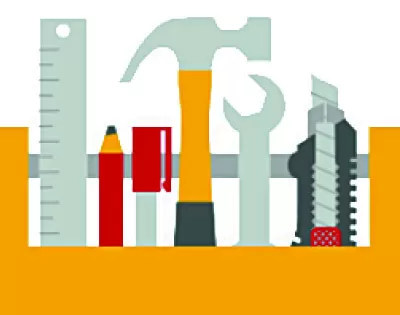Tools and Resources for Homeowners
As a homeowner you are faced with deciding to how to manage and maintain your home. This could mean applying for a loan modification, refinancing your mortgage, or if your mortgage is paid off, obtaining a reverse mortgage.

Your home. Your money.
Owning a home comes with making many choices. Once you are a homeowner you may be faced with financial decisions, such as applying for a home equity loan, budgeting for a home improvement, or using your savings for an emergency repair.
-
Home Equity Loans and Lines of Credit
If you’re thinking about making a home improvement or looking at ways to pay for your child’s college education, you may be thinking about tapping into your home's equity as a way to cover the costs. This is the difference between what your home could sell for and what you owe on the mortgage. Home equity financing can be set up as a loan or a line of credit.
Learn more about home equity loans and lines of credit and what you need to know in order to shop for the best deal.
-
Refinance or Modify?
The possibility of losing your home because you can’t make the mortgage payments can be terrifying. Perhaps you’re having trouble making ends meet because you or a family member lost a job, or you’re having other financial problems. Learn about refinancing or modifying your mortgage.
-
Reverse Mortgages
A reverse mortgage is a special type of loan that allows you to convert part of the equity in your home into cash without having to sell your home. In a reverse mortgage, you receive money from the lender, and generally don’t have to pay it back for as long as you live in your home. Learn about the benefits and limitation of a reverse mortgage.
-
Planning for the Unexpected
A solid emergency fund is perhaps one of the most important tools in developing and sustaining financial security. It is recommended to save six months of living expenses because no matter how well things are going, or well you plan, bad things will happen from time to time. Learn how to plan and save for a rainy day.
-
The Real Cost: How Long Do Things Last?
The National Association of Home Builders estimates as the life span for various housing components:
- Roof: Typically 20 to 30 years, depending on material, although slate, copper, clay or concrete roofs have an expected life span of more than 50 years.
- Flooring: Carpets last eight to 10 years, linoleum 25, vinyl up to 50; wood, marble, slate and granite can last 100 years.
- Decks: About 20 years “under ideal conditions.”
Consumer Reports says to expect the following life spans:
- Oil furnace: 20 years.
- Gas furnace: 18 years.
- Electric furnace: 15 years.
- Central air conditioner: 15 years.
- Gas range: 15 years.
- Electric range: 13 years.
- Refrigerator: 13 years.
- Dryer: 13 years.
- Freezer: 11 years.
- Washing machine: 10 years.
- Dishwasher: 9 years.
Read more at Nerdwallet.


